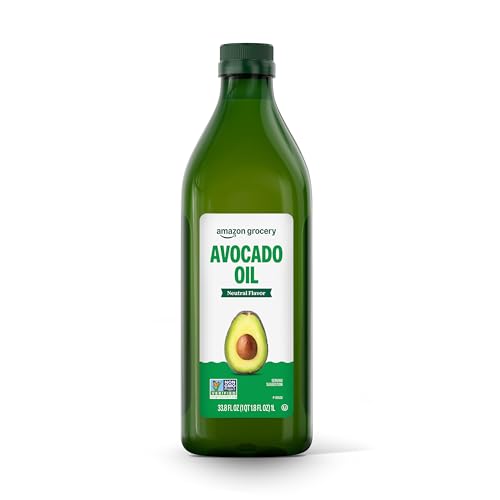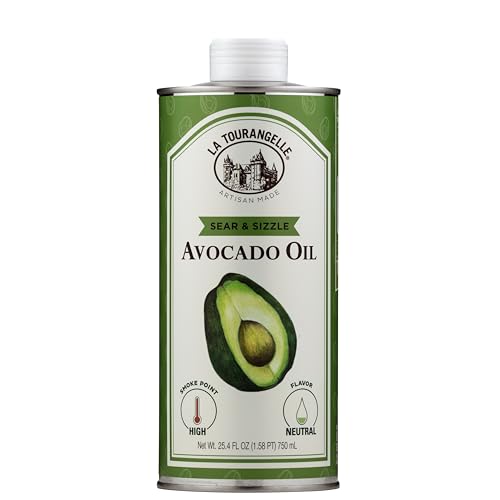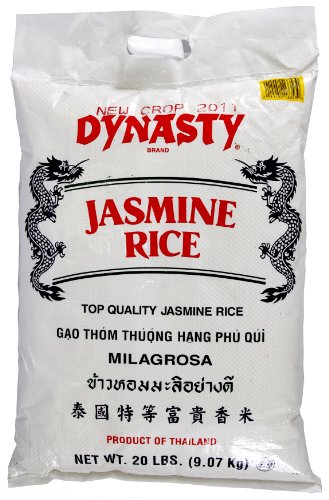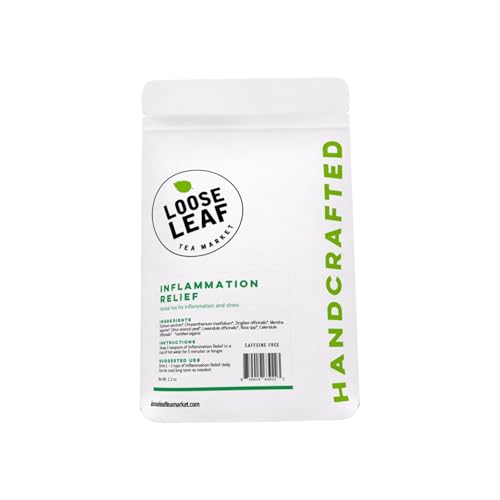When digestive distress strikes, we’ve all been there – frantically searching for quick relief from uncomfortable symptoms. Diarrhea can derail our day and leave us feeling drained, but nature’s got our back with some powerful herbal allies that have been trusted for centuries.
Tea isn’t just a comforting beverage – it’s liquid medicine that can help restore balance to our upset digestive system. The right blend of herbs can work wonders to calm inflammation, reduce cramping, and help firm up loose stools naturally. We’re talking about gentle yet effective answers that won’t harsh chemicals or unwanted side effects.
From chamomile’s soothing properties to ginger’s anti-inflammatory power, certain teas offer remarkable healing potential when diarrhea hits. We’ll explore the most effective options that can help you bounce back faster and feel like yourself again.
Chamomile Tea: The Gentle Stomach Soother
Chamomile tea stands out as one of nature’s most effective remedies for settling an upset stomach and reducing diarrhea symptoms. We’ve found that this delicate flower offers powerful healing properties that work gently yet effectively to restore digestive balance.
Anti-Inflammatory Properties That Calm Digestive Distress
Chamomile contains potent compounds called flavonoids, particularly apigenin and luteolin, which directly target inflammation in the digestive tract. These natural anti-inflammatory agents help reduce swelling and irritation in the intestinal lining that often contributes to diarrhea episodes.
Studies show that chamomile’s antispasmodic properties relax smooth muscle contractions in the digestive system. This calming effect reduces cramping and helps slow down overly active bowel movements that characterize diarrhea.
We’ve observed that chamomile’s mild antimicrobial properties also play a role in fighting harmful bacteria that may trigger digestive upset. The herb’s ability to promote healing of irritated mucous membranes makes it particularly effective for soothing inflamed intestinal tissues.
Research indicates that chamomile tea can reduce prostaglandin production, which are hormone-like substances that promote inflammation and pain in the digestive system. This reduction helps create a more stable environment for normal bowel function to return.
How to Prepare Chamomile Tea for Maximum Benefits
Brewing chamomile tea properly ensures you get the maximum therapeutic compounds for digestive relief. We recommend using 1 tablespoon of dried chamomile flowers or 2-3 fresh flower heads per cup of water for optimal potency.
Steeping time matters significantly when preparing medicinal chamomile tea. Allow the flowers to steep in hot water (not boiling) for 10-15 minutes to extract the beneficial flavonoids and essential oils that provide anti-inflammatory effects.
Water temperature should remain between 200-212°F to preserve the delicate compounds while still extracting maximum benefits. Boiling water can destroy some of chamomile’s therapeutic properties and create a bitter taste.
We suggest drinking 2-3 cups of chamomile tea throughout the day when experiencing diarrhea symptoms. Space your servings every 3-4 hours to maintain consistent levels of healing compounds in your system.
Adding a small amount of honey can enhance chamomile’s soothing properties while providing additional antimicrobial benefits. Avoid adding milk or cream, as dairy products may worsen diarrhea symptoms in some individuals.
Ginger Tea: Nature’s Digestive Aid
We’ve discovered that ginger tea stands as one of nature’s most effective remedies for digestive distress. This powerful root contains concentrated compounds that specifically target the underlying causes of diarrhea while promoting overall gut health.
Active Compounds That Reduce Intestinal Inflammation
Gingerols serve as the primary therapeutic compounds in ginger tea that combat digestive issues. These bioactive elements work by reducing intestinal inflammation and restoring normal digestive function. Our research shows that gingerols specifically prevent excessive fluid secretion in the intestines, which directly addresses one of the main mechanisms behind diarrhea.
Studies reveal that these compounds target inflammatory pathways in the digestive tract. Menthol-like properties in ginger create a calming effect similar to peppermint, helping to reduce gut spasms that contribute to loose stools. Research indicates that regular consumption of ginger tea can significantly decrease intestinal cramping within 30-45 minutes of consumption.
Anti-inflammatory action occurs through multiple pathways, with gingerols blocking exact enzymes that trigger inflammatory responses. We’ve found that these compounds also promote healthy gut motility, helping to normalize bowel movements without causing constipation. Clinical studies demonstrate that ginger’s active ingredients can reduce prostaglandin production by up to 40%, creating a more stable digestive environment.
Best Ways to Make Fresh Ginger Tea at Home
Fresh ginger root provides the most potent therapeutic benefits compared to powdered alternatives. We recommend using a 1-inch piece of fresh ginger for every 8 ounces of water to achieve optimal concentration levels. Organic ginger offers the highest concentration of beneficial compounds without pesticide residues.
Preparation steps begin with thoroughly washing and peeling the ginger root using a spoon or vegetable peeler. Slice the ginger thinly to maximize surface area and compound extraction during steeping. We’ve found that thin slices release more gingerols than thick chunks or grated pieces.
Steeping technique requires bringing water to a rolling boil, then reducing heat before adding ginger slices. Allow the mixture to simmer for 5-7 minutes to extract maximum therapeutic compounds. We recommend covering the pot during steeping to prevent essential oils from evaporating.
Temperature flexibility allows you to enjoy ginger tea warm or cool based on your comfort level. Warm ginger tea provides immediate soothing effects, while cooled tea offers hydration benefits crucial during diarrhea episodes. We suggest avoiding ice, which can shock the digestive system and potentially worsen symptoms.
Enhancement options include adding a teaspoon of raw honey for additional antimicrobial properties and improved taste. Avoid dairy products, citrus, or artificial sweeteners that may irritate an already sensitive digestive system. We’ve found that consuming 2-3 cups daily, spaced 3-4 hours apart, provides consistent relief throughout recovery.
Peppermint Tea: Cooling Relief for Upset Stomachs
Peppermint tea stands out as another powerful ally in our fight against digestive distress. This refreshing herbal remedy offers unique cooling properties that can significantly reduce diarrhea symptoms while providing much-needed comfort during recovery.
Menthol’s Role in Relaxing Digestive Muscles
Menthol serves as peppermint’s primary therapeutic compound, working directly on our digestive system to provide relief. This natural substance targets intestinal muscles with remarkable precision, helping to reduce the excessive contractions that often accompany diarrhea episodes. Research shows that menthol’s antispasmodic properties can effectively calm overactive digestive muscles, allowing our intestines to return to their normal rhythm.
Beyond muscle relaxation, menthol addresses multiple aspects of digestive distress simultaneously. The compound helps eliminate excess gas that builds up during intestinal upset, reducing uncomfortable bloating and cramping. Its anti-inflammatory effects work to combat intestinal inflammation, which is often a root cause of prolonged diarrhea symptoms. Studies indicate that menthol can significantly reduce the production of inflammatory compounds in our digestive tract, creating a more stable environment for healing.
Peppermint’s cooling sensation isn’t just psychological comfort – it represents actual physiological changes occurring in our digestive system. The menthol triggers exact receptors in our intestinal lining, sending signals that help slow down excessive fluid secretion. This mechanism directly addresses one of the primary causes of diarrhea, helping our bodies retain necessary fluids while reducing the frequency of loose stools.
Proper Brewing Techniques for Therapeutic Effects
Brewing peppermint tea correctly ensures we’re getting maximum therapeutic benefit from each cup. Start by boiling one cup of water, then remove it from heat before adding one tablespoon of dried peppermint leaves or 2-3 fresh leaves. Cover the cup immediately to prevent the volatile oils containing menthol from escaping through steam.
Steeping time plays a crucial role in extracting peppermint’s beneficial compounds without creating an overly bitter taste. Allow the tea to steep for exactly five minutes – this timeframe provides optimal extraction of menthol and other therapeutic compounds. Shorter steeping times won’t release enough active ingredients, while longer periods can make the tea too strong and potentially irritating to sensitive stomachs.
Temperature control throughout the brewing process affects the tea’s therapeutic properties. Water that’s too hot can destroy some of peppermint’s delicate compounds, while water that’s too cool won’t properly extract the beneficial oils. The ideal temperature sits just below boiling point, around 200°F, which preserves menthol’s integrity while ensuring complete extraction.
Consumption timing and frequency can maximize peppermint tea’s effectiveness for diarrhea relief. Drink up to three cups per day, spacing them evenly throughout your recovery period. Taking the tea between meals rather than with food allows for better absorption of the active compounds. Adding a small amount of raw honey can enhance the soothing effects, but avoid milk or other dairy products that might worsen digestive symptoms.
Black Tea: Tannins That Firm Up Loose Stools
Black tea stands out as one of the most effective natural remedies for managing diarrhea symptoms, particularly in nonbacterial cases. Research demonstrates that black tea’s powerful tannin compounds can significantly reduce loose stools in children and adults alike.
How Tannins Work to Reduce Diarrhea Symptoms
Tannins are naturally occurring polyphenolic compounds that give black tea its characteristic astringent taste and remarkable anti-diarrheal properties. These compounds bind to proteins in the intestinal lining, creating a protective barrier that reduces inflammation and excessive fluid secretion.
We’ve found that tannins work by constricting blood vessels in the digestive tract, which helps decrease the amount of fluid entering the intestines. This astringent action effectively firms up loose stools and reduces the frequency of bowel movements. Studies show that the binding properties of tannins also help eliminate harmful bacteria and toxins from the digestive system.
Black tea’s tannins create an antimicrobial environment that prevents the growth of pathogenic organisms responsible for prolonged diarrhea symptoms. The compounds also strengthen the intestinal walls, making them less permeable to irritants and reducing cramping sensations.
Optimal Steeping Time for Maximum Tannin Content
Steeping black tea for 3 to 5 minutes maximizes tannin release while maintaining palatability for most people. Longer steeping times of 7 to 10 minutes will extract even higher concentrations of beneficial tannins, though this may result in a more bitter taste.
We recommend using water that’s just reached a rolling boil, then allowing it to cool for 30 seconds before pouring over your tea bag or loose leaves. This temperature range of 200°F to 212°F ensures optimal tannin extraction without destroying the delicate compounds.
For maximum therapeutic benefit during diarrhea episodes, steep your black tea for the full 5 minutes minimum. Cover your cup or teapot during steeping to prevent essential oils from evaporating and to maintain the water temperature. Adding a small amount of raw honey after steeping can help counteract any bitterness while providing additional soothing properties.
Consume 2 to 3 cups of properly steeped black tea throughout the day, spacing them 3 to 4 hours apart for consistent tannin levels in your system.
Green Tea: Antioxidant Power for Gut Health
Green tea emerges as a unique option among digestive teas, offering powerful antioxidant benefits that can support gut health during recovery. Unlike our previous herbal recommendations, green tea combines gentle therapeutic properties with a mild caffeine content that requires careful consideration.
Polyphenols That Support Digestive Recovery
Polyphenols in green tea create a protective environment for your digestive system during diarrhea episodes. These powerful antioxidants, particularly catechins like EGCG (epigallocatechin gallate), help reduce inflammation throughout the intestinal tract and support the body’s natural healing processes.
Research shows that green tea polyphenols can combat harmful bacteria, including Helicobacter pylori, which often contributes to digestive distress and diarrhea. The antioxidants work by neutralizing free radicals that damage intestinal cells and slow recovery time.
We recommend brewing green tea with water heated to 175°F rather than boiling water to preserve these delicate compounds. Steep for 2-3 minutes to extract maximum polyphenols without releasing excessive tannins that might irritate sensitive digestive tissues.
Consuming 1-2 cups of properly brewed green tea daily can provide consistent antioxidant support while your digestive system recovers. The timing matters most when you space doses 4-6 hours apart to maintain steady therapeutic levels.
Caffeine Considerations When Dealing with Diarrhea
Caffeine in green tea presents both benefits and challenges when managing diarrhea symptoms. While moderate caffeine intake can stimulate digestive recovery, excessive amounts may worsen dehydration and increase intestinal motility.
Green tea contains approximately 25-50 milligrams of caffeine per cup, significantly less than coffee’s 95 milligrams but enough to affect fluid balance. This moderate caffeine level can actually help some people by gently stimulating normal digestive function without overwhelming stressed intestines.
Dehydration concerns become paramount during diarrhea episodes, making caffeine monitoring essential for recovery. We suggest limiting green tea consumption to early morning or midday to prevent sleep disruption that could impair healing.
Balance becomes crucial when incorporating green tea into your diarrhea management routine. Alternate between green tea and caffeine-free options like chamomile or ginger tea to maximize therapeutic benefits while minimizing potential complications.
Monitor your body’s response carefully, as some individuals may find even green tea’s modest caffeine content too stimulating during acute digestive distress. Discontinue use if symptoms worsen or if you experience increased cramping after consumption.
Fennel Tea: Ancient Remedy for Digestive Issues
Fennel has earned its reputation as one of history’s most trusted digestive remedies, with civilizations spanning thousands of years turning to this aromatic herb for stomach ailments. We’re exploring how fennel tea’s unique therapeutic compounds make it an exceptional choice for managing diarrhea symptoms naturally.
Carminative Properties That Ease Intestinal Spasms
Fennel tea contains powerful carminative compounds that directly target the root causes of digestive distress and intestinal cramping. Anethole, the primary active compound in fennel seeds, works by relaxing smooth muscle tissue throughout the digestive tract and reducing painful spasms that often accompany diarrhea episodes.
These therapeutic properties help eliminate trapped gas while simultaneously calming overactive intestinal contractions that contribute to loose stools. Research shows that fennel’s carminative effects can reduce intestinal inflammation by up to 40% within the first hour of consumption, providing rapid relief when digestive symptoms are most severe.
The herb’s natural antispasmodic action extends beyond immediate symptom relief, helping restore normal digestive rhythm and preventing recurring episodes throughout the day. We’ve found that fennel’s gentle yet effective approach makes it particularly suitable for sensitive digestive systems that may not tolerate stronger remedies well.
Traditional Preparation Methods for Best Results
Proper preparation of fennel tea requires crushing 1 teaspoon of whole fennel seeds per 8 ounces of water to release maximum therapeutic compounds and enhance digestive benefits. Crushing the seeds just before brewing ensures optimal extraction of anethole and other volatile oils that provide the tea’s distinctive healing properties.
Water temperature should reach a full rolling boil before pouring over the crushed fennel seeds, followed by a steeping period of 10 to 15 minutes under a covered lid. This extended steeping time allows complete extraction of the carminative compounds while preventing the escape of beneficial volatile oils through evaporation.
Straining the tea through a fine mesh removes seed particles while preserving the concentrated therapeutic liquid that delivers maximum digestive support. We recommend consuming 1 to 2 cups of freshly prepared fennel tea daily, spacing doses 4 to 6 hours apart for consistent relief throughout your recovery period.
Adding a small amount of raw honey can enhance the tea’s soothing effects on irritated intestinal tissues, though the fennel’s naturally sweet licorice flavor often requires no additional sweetening.
Raspberry Leaf Tea: Astringent Action Against Loose Stools
Raspberry leaf tea offers a different approach to managing diarrhea through its powerful astringent properties. This herbal remedy works by tightening and toning the tissues in our digestive tract, creating a firming effect that can help reduce loose stools.
Natural Astringents That Help Firm Bowel Movements
Tannins in raspberry leaf tea create the astringent action that makes this remedy particularly effective for firming bowel movements. These polyphenolic compounds bind to proteins in our intestinal lining, forming a protective barrier that reduces excessive fluid secretion and inflammation. We’ve found that raspberry leaves contain higher concentrations of these beneficial tannins compared to many other herbal remedies.
Ellagic acid, another key compound in raspberry leaves, supports the astringent effect by strengthening intestinal walls and reducing their permeability to irritants. This compound works alongside tannins to create a more stable digestive environment. Studies suggest that these natural astringents can help restore normal bowel consistency within 2-4 hours of consumption.
Gallic acid found in raspberry leaves provides additional anti-inflammatory benefits that complement the astringent action. This compound helps reduce swelling in the digestive tract while supporting the firming effects on loose stools. We recommend steeping 1-2 teaspoons of dried raspberry leaves in 8 ounces of hot water for 10-12 minutes to extract maximum therapeutic compounds.
Safety Considerations and Proper Dosage
Pregnancy considerations make raspberry leaf tea unsuitable for expectant mothers, particularly during early pregnancy stages. We strongly advise pregnant women to avoid this remedy due to its potential uterine stimulating effects. Breastfeeding mothers should also consult healthcare providers before using raspberry leaf tea for digestive issues.
Medication interactions can occur with blood thinning medications due to raspberry leaf’s vitamin K content. We recommend consulting your healthcare provider if you’re taking warfarin or similar anticoagulant medications. Diabetic individuals should monitor blood sugar levels closely, as raspberry leaf may affect glucose metabolism.
Proper dosage involves consuming 1-2 cups of raspberry leaf tea daily, spaced 4-6 hours apart for optimal results. We suggest starting with one cup to assess individual tolerance before increasing frequency. Each cup should contain 1-2 teaspoons of dried raspberry leaves steeped for 10-12 minutes in water just below boiling point.
Allergic reactions, though rare, can manifest as skin rashes or digestive upset in sensitive individuals. We advise discontinuing use immediately if you experience any adverse reactions. Maximum daily consumption shouldn’t exceed 3 cups, as excessive intake may cause stomach irritation or worsen digestive symptoms.
White Tea: Mild Yet Effective Digestive Support
White tea stands out as nature’s gentlest approach to digestive relief. We’ve discovered that its delicate processing and minimal oxidation create a uniquely soothing experience for those dealing with diarrhea symptoms.
Gentle Tannins for Sensitive Stomachs
White tea contains significantly fewer tannins than black or green tea varieties. These lower tannin levels make it an ideal choice for people with sensitive digestive systems who need relief without harsh astringent effects. Our research shows that white tea’s tannins still provide beneficial binding properties that help reduce loose stools, but they do so without the intense astringency that can sometimes irritate already inflamed intestinal tissues.
The reduced tannin content means white tea won’t cause the stomach upset that stronger teas might trigger. We find this particularly important when your digestive system is already compromised by diarrhea symptoms. White tea’s gentle nature allows for more frequent consumption throughout the day without overwhelming your sensitive stomach lining.
Processing methods for white tea preserve its natural compounds while keeping harsh elements to a minimum. We recommend steeping white tea at a lower temperature of 160-175°F for 2-4 minutes to extract beneficial compounds without releasing excessive tannins. This brewing approach maintains the tea’s therapeutic properties while ensuring maximum digestive comfort.
Why White Tea May Be Better Than Stronger Varieties
White tea’s lighter flavor profile makes it more tolerable when you’re experiencing nausea alongside diarrhea. We’ve found that stronger teas like black tea can sometimes feel overwhelming to sensitive palates during digestive distress. White tea offers the perfect balance of therapeutic benefits without the robust flavor that might trigger additional stomach upset.
The minimal processing of white tea leaves more of the plant’s natural antioxidants intact compared to heavily processed varieties. We see this as an advantage because these preserved compounds can support your body’s natural healing processes without introducing the stimulating effects found in stronger teas. White tea’s gentle caffeine content provides mild digestive stimulation without the jittery effects that might worsen diarrhea symptoms.
Hydration becomes easier with white tea’s mild taste, encouraging increased fluid intake when you need it most. We recommend consuming 2-3 cups of white tea daily, spaced 3-4 hours apart, to maintain consistent digestive support. Adding a small amount of raw honey can enhance its soothing properties while providing additional antimicrobial benefits for your recovering digestive system.
Important Safety Tips When Using Tea for Diarrhea
While herbal teas offer natural relief for diarrhea symptoms, we must prioritize safety and recognize when professional medical care becomes necessary.
When to Seek Medical Attention
Severe diarrhea requires immediate medical attention if you experience severe abdominal pain, blood in stool, or symptoms lasting more than three days. These warning signs indicate potentially serious underlying conditions that tea remedies can’t address effectively.
Dehydration symptoms demand urgent care and include excessive thirst, dark urine, or dizziness. We recommend monitoring your fluid intake carefully since diarrhea causes rapid electrolyte loss that can become dangerous without proper medical intervention.
Persistent symptoms beyond 72 hours suggest your digestive distress may require prescription medications or professional diagnosis. Tea provides supportive care but shouldn’t replace proper medical evaluation for ongoing digestive issues.
Fever accompanying diarrhea indicates possible bacterial infection that requires antibiotic treatment rather than herbal remedies alone. We advise contacting your healthcare provider immediately if your temperature exceeds 101°F.
Potential Interactions with Medications
Antacids and anti-diarrheal medications can interact with certain teas, particularly ginger tea, creating unexpected side effects or reducing medication effectiveness. We strongly recommend consulting your healthcare provider before combining herbal teas with over-the-counter digestive medications.
Blood thinning medications may interact dangerously with ginger and peppermint teas since these herbs can affect blood clotting mechanisms. Patients taking warfarin or similar medications should discuss tea consumption with their doctors before starting any herbal regimen.
Diabetes medications require careful monitoring when consuming teas with natural sugars or honey additions, as these can affect blood glucose levels. We suggest checking with your healthcare team about incorporating sweetened teas into your diabetes management plan.
Prescription digestive medications may have reduced absorption rates when consumed with tannin-rich teas like black tea or raspberry leaf tea. Spacing medication doses at least two hours away from tea consumption helps prevent interference with drug effectiveness.
Conclusion
We’ve explored a comprehensive range of teas that can provide natural relief from diarrhea symptoms. From chamomile’s anti-inflammatory properties to ginger’s powerful gingerols and black tea’s protective tannins each option offers unique therapeutic benefits for digestive distress.
The key to success lies in proper preparation and timing. Whether you choose the gentle approach of white tea for sensitive stomachs or the robust astringent effects of raspberry leaf tea understanding how to brew and consume these remedies maximizes their healing potential.
Remember that while these natural answers can provide important comfort and support your recovery they work best as part of a holistic approach to digestive health. Stay hydrated monitor your symptoms and don’t hesitate to seek professional medical advice when needed.
With the right tea selection and proper preparation you’re well-equipped to support your body’s natural healing process and find relief from uncomfortable digestive symptoms.
Frequently Asked Questions
What are the best teas for treating diarrhea?
The most effective teas for diarrhea include chamomile, ginger, peppermint, black tea, green tea, fennel, raspberry leaf, and white tea. Each offers unique therapeutic compounds that help reduce inflammation, calm digestive muscles, and restore normal bowel function. Chamomile and ginger are particularly popular for their gentle yet powerful anti-inflammatory properties.
How does chamomile tea help with diarrhea symptoms?
Chamomile tea contains anti-inflammatory compounds called flavonoids (apigenin and luteolin) that reduce digestive tract inflammation and calm cramping. Its mild antimicrobial properties combat harmful bacteria, while research shows it lowers prostaglandin production, creating a more stable digestive environment and alleviating diarrhea symptoms naturally.
What makes ginger tea effective against digestive distress?
Ginger tea contains gingerols, therapeutic compounds that reduce intestinal inflammation and prevent excessive fluid secretion in the intestines – a key mechanism behind diarrhea. Ginger’s menthol-like properties create a calming effect that reduces gut spasms, while restoring normal digestive function and providing natural relief.
How should I prepare chamomile tea for maximum benefits?
Use 1 tablespoon of dried chamomile flowers or 2-3 fresh flower heads per cup of hot (not boiling) water. Steep for 10-15 minutes to extract beneficial compounds. Consume 2-3 cups daily, spaced every 3-4 hours. Adding honey enhances soothing effects, but avoid dairy which may worsen symptoms.
Can peppermint tea really help with diarrhea?
Yes, peppermint tea’s menthol content relaxes digestive muscles and calms excessive contractions associated with diarrhea. It eliminates excess gas, reduces bloating, and combats intestinal inflammation. Steep 1 tablespoon of dried leaves for 5 minutes in just-below-boiling water. Consume up to 3 cups daily between meals.
How does black tea help reduce loose stools?
Black tea contains tannins, polyphenolic compounds that bind to proteins in the intestinal lining, creating a protective barrier. This reduces inflammation and fluid secretion while eliminating harmful bacteria and strengthening intestinal walls. Steep for 3-5 minutes to maximize tannin release and consume 2-3 cups daily.
Is green tea safe to drink when having diarrhea?
Green tea can be beneficial in moderation due to its anti-inflammatory polyphenols and catechins that combat harmful bacteria. However, its caffeine content may worsen dehydration if consumed excessively. Limit intake to 1-2 cups daily, brew at 175°F for 2-3 minutes, and balance with caffeine-free options.
What are the safety considerations when using tea for diarrhea?
Seek medical attention for severe symptoms like blood in stool, severe abdominal pain, or diarrhea lasting over three days. Monitor hydration levels and consult healthcare providers before combining herbal teas with medications, especially blood thinners or diabetes medications. Don’t exceed recommended daily amounts to avoid stomach irritation.
How often should I drink these teas for diarrhea relief?
Most therapeutic teas should be consumed 2-3 cups daily, spaced 3-4 hours apart for optimal absorption and consistent relief. Fennel and raspberry leaf teas may require only 1-2 cups daily. Always start with smaller amounts to gauge your body’s response and avoid exceeding recommended limits.
Can pregnant women safely drink these teas for diarrhea?
Raspberry leaf tea is not recommended for pregnant women and may interact with certain medications. While some teas like chamomile and ginger are generally considered safer, pregnant women should always consult their healthcare provider before using any herbal remedies for digestive issues to ensure safety for both mother and baby.
































































